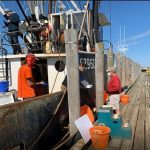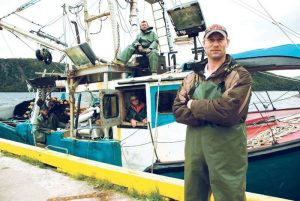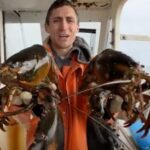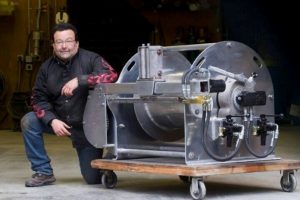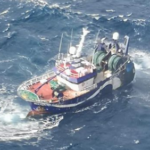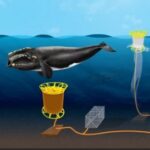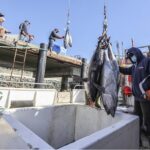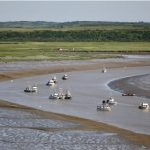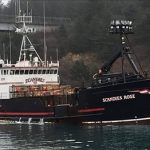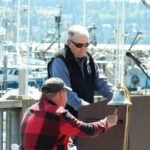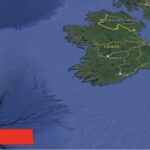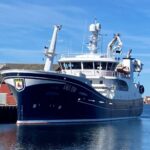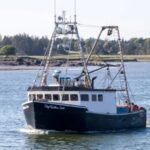Daily Archives: May 22, 2017
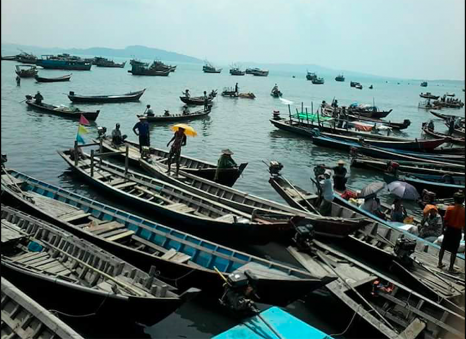
Fishermen Protest Against Kyaukphyu Seaport
Fishermen aboard 120 boats protested along the Thanzit River against the Maday Island deep seaport in Arakan State on Monday, as authorities have banned them from fishing in a stretch of water now reserved for international cargo ships docking at the port.,, Chinese-owned oil tankers began docking at the seaport in early May to transport the oil through Maday terminal to the China-Burma border. Authorities told locals that the oil tankers would dock at the port three times each week, according to Aung Naing Win. But residents of Maday Island said at least six or seven ships arrived within one week, and another five shops are waiting to dock. Local fishermen have been restricted from catching fish near the mouth of the river where the ships dock. “As villagers are finding it harder to earn a living by fishing, they are seeking to earn money by cutting mangroves. Click here to read the story 18:49
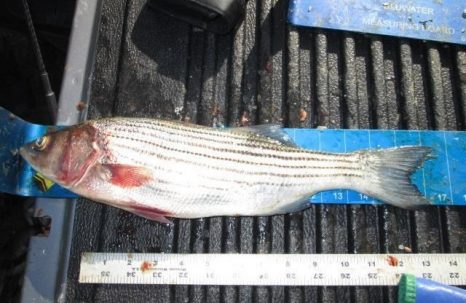
Recreational Fishermen caught with nearly 300 more black sea bass than allowed
On just the second day of the black sea bass fishing season, two boats of fishermen were caught by harbormasters with nearly 300 more of the black sea bass than allowed in the recreational limit. The Wareham Harbormaster Department alerted the Massachusetts Environmental Police to the two boats on Sunday at the Tempest Knob Public boat ramp. When officers inspected the first boat, which had four people aboard, they found multiple coolers that contained 225 more black sea bass than the recreational limit allows, Environmental Police said. Fifty-nine of those fish were smaller than the 15-inch limit. That boat also had 98 more scup than legal possession limit, as well as two undersized tautog and one 17-inch striped bass. Click here to read the story 17:25
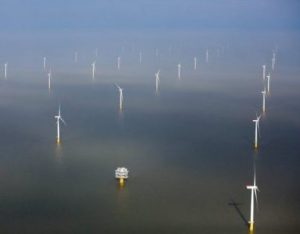
Offshore Wind Turbines Blamed For Killing Family Of Whales
Marine environmental experts blame offshore wind turbines for the deaths of three minke whales that washed up on British beaches, The Times reported Monday. Wildlife experts claim that the noise generated by wind turbines affected the sonar that whales use to navigate, causing them to beach themselves. There are several commercial offshore wind farms close to where the whales beached themselves.“My personal opinion is that it could be a consequence of wind farms and the amount of sand in the water,” John Cresswell, chairman of the Felixstowe Volunteer Coast Patrol Rescue Service, told The Times. “If you stop the boat off the coast you can feel the vibrations and hear the noise.” The U.K. coastguard received reports of a minke whale calf that had become separated from its mother Friday evening. By the next afternoon, it had been found dead at the mouth of the River Ore, and its mother washed up near Felixstowe. On Sunday, another dead adult whale surfaced, indicating that an entire family could have been killed. Click here to read the story 16:52
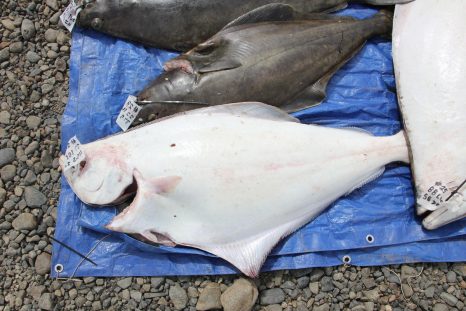
Halibut fishery kicks off in Bristol Bay
Last week the F/V Eagle Two was sitting alone in the Dillingham harbor, getting ready to fish halibut. The harbor has not been dredged yet, and the floats and arms are not installed for ease of use. Halibut fishing normally happens after Togiak herring, but about a month before any salmon openers in the Bay. “We’re always anxious to get started, but we’re waiting on ice,” said skipper William Johnson, whose crew was preparing the vessel for departure to the far side of the Nushagak Peninsula. “Heading west to go get bait and do a little fishing out there, and then come back and then finish out the season down here,” said Johnson. He noted they pack extra fuel for the long distance trip out in the quiet Bay. click here for audio, read the story 16:33
How Maine came to play a central role in an international eel smuggling scheme
 Years after officials launched an investigation into baby eel poaching on the East Coast, the first of several men to plead guilty to participating in the wildlife trafficking ring was sentenced last week in a federal courtroom in Maine. Michael Bryant, 40, a former Baileyville resident who now lives in West Yarmouth, Massachusetts, is one of more than a dozen men who the U.S. Fish & Wildlife Service says poached thousands of pounds of the baby eels, also known as elvers or “glass” eels, from 2011 through 2014. Since 2011, elvers on average have fetched around $1,500 per pound for fishermen, and netted more than $4 million total for the 12 convicted poachers who have pleaded guilty to federal charges in South Carolina, Virginia and Maine. Maine found itself at the center of a criminal enterprise that illegally netted elvers along the Atlantic seaboard, where most states ban their harvesting, and then shipped the eels overseas to feed East Asia’s voracious seafood appetite, according to investigators. click here to read the story 14:43
Years after officials launched an investigation into baby eel poaching on the East Coast, the first of several men to plead guilty to participating in the wildlife trafficking ring was sentenced last week in a federal courtroom in Maine. Michael Bryant, 40, a former Baileyville resident who now lives in West Yarmouth, Massachusetts, is one of more than a dozen men who the U.S. Fish & Wildlife Service says poached thousands of pounds of the baby eels, also known as elvers or “glass” eels, from 2011 through 2014. Since 2011, elvers on average have fetched around $1,500 per pound for fishermen, and netted more than $4 million total for the 12 convicted poachers who have pleaded guilty to federal charges in South Carolina, Virginia and Maine. Maine found itself at the center of a criminal enterprise that illegally netted elvers along the Atlantic seaboard, where most states ban their harvesting, and then shipped the eels overseas to feed East Asia’s voracious seafood appetite, according to investigators. click here to read the story 14:43
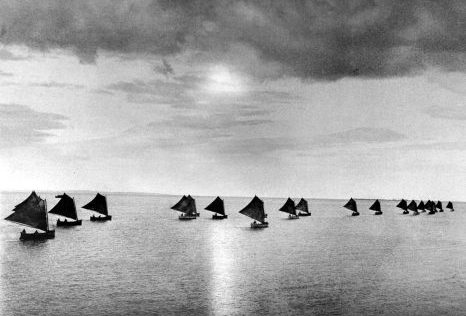
When sailboats ruled Bristol Bay
One hundred and thirty-two years ago, the Bristol Bay commercial fishery began on the shores of the Nushagak River when the first cannery went into operation and canned a little more than 4,000 salmon. Within four years, three more canneries appeared on the Nushagak, and within a decade canneries were built on the Naknek and Kvichak rivers. The dawn of the 20th century saw dozens of canneries around Bristol Bay catching, processing and canning millions of pounds of sockeye salmon every summer. By 1910, Bristol Bay accounted for 40 percent of Alaska’s commercially caught salmon. Even today, Bristol Bay makes up about 40 percent of Alaska’s salmon value. Canneries are large industrial operations. In the early days, coal and steam provided the power to run complex systems of boilers, belt-driven pulleys and winches needed to butcher, cook, can and deliver salmon to the world. But when it came to actually catching fish in Bristol Bay, canneries relied upon the muscle of men and the power of wind. click here for images, and read the story 11:27
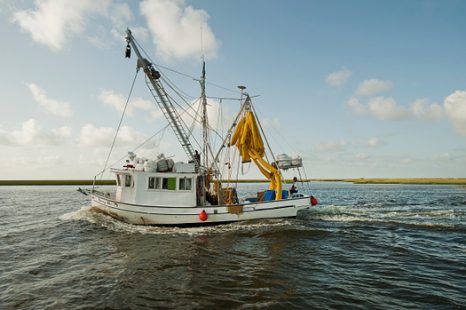
What goes in the water in Wisconsin comes out in the Gulf of Mexico
A group of farmers in southwestern Wisconsin’s Driftless Area has become acutely aware that what gets into the watershed here can wind up hundreds of miles away. These farmers use conservation practices to keep nutrients on their land and out of lakes and streams. Margaret Krome, policy program director at the Michael Fields Agricultural Institute, says nutrients that get into the water here follow a direct path down the Mississippi River. “Those nutrients go shooshing right out into the Gulf of Mexico and create a zone with such high nutrients that they end up with a big algal bloom, and that sucks all the oxygen out of the water and kills other organisms,” she explains. “So it’s a dead zone because fishermen can’t fish there.” The Wisconsin farmers have developed a relationship with Gulf fishermen, who are appreciative of the farmers’ efforts to help improve fishing conditions in the Gulf. click here to read the story 10:52
Bad salmon run hints at trouble ahead
 Count backward three years and we come to 2014 — precursor to this spring’s extremely poor salmon returns. Fewer than 20,000 adult spring Chinook and about 1,500 immature jacks have been counted at Bonneville Dam, compared to 10-year averages of about 127,000 and 17,000. Shad, another species that should begin surging toward inland spawning grounds about now, reached a count of 26 at Bonneville late last week, compared to the 10-year average of more than 11,000. In the case of Chinook, actual returns may not be quite so bleak as the dam count indicates. Heavy mountain runoff has made the Columbia’s water cloudy and cold. Test fisheries found quite a few Chinook loitering here in the estuary, delaying their swim upstream. But with the start of summer only a month away, there isn’t much time left for the spring run to come through. If they don’t make it to spawning grounds, the run three years from now also will be weak. click here to read the op-ed 09:36
Count backward three years and we come to 2014 — precursor to this spring’s extremely poor salmon returns. Fewer than 20,000 adult spring Chinook and about 1,500 immature jacks have been counted at Bonneville Dam, compared to 10-year averages of about 127,000 and 17,000. Shad, another species that should begin surging toward inland spawning grounds about now, reached a count of 26 at Bonneville late last week, compared to the 10-year average of more than 11,000. In the case of Chinook, actual returns may not be quite so bleak as the dam count indicates. Heavy mountain runoff has made the Columbia’s water cloudy and cold. Test fisheries found quite a few Chinook loitering here in the estuary, delaying their swim upstream. But with the start of summer only a month away, there isn’t much time left for the spring run to come through. If they don’t make it to spawning grounds, the run three years from now also will be weak. click here to read the op-ed 09:36
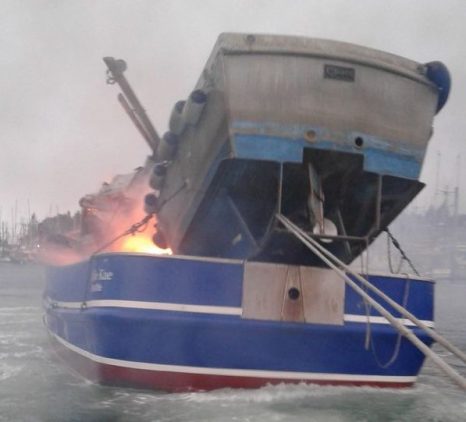
Three commercial fishing boats burn in Southeast Alaska marina fire
The U.S. Coast Guard is investigating a fire that burned three commercial fishing boats at a Southeast Alaska marina early Sunday morning. Fire was reported aboard the 57-foot Seaborn, 56-foot Pacific Lady and 49-foot Julia Kae at about 3:30 a.m. Sunday, the Coast Guard said in a statement. The three boats — two of them steel-hulled seiners, the third fiberglass — were tied to each other at the North Cove harbor in Craig, Harbormaster Hans Hjort said Sunday. People living on vessels in the harbor first alerted authorities of the fire, he said. Craig and Klawock volunteer firefighters worked to extinguish the flames. Click here to read the story 08:17
Three-vessel fire under investigation – click here for more images 12:25


































